Space
Sign up for our newsletter
We summarize the week's scientific breakthroughs every Thursday.
-
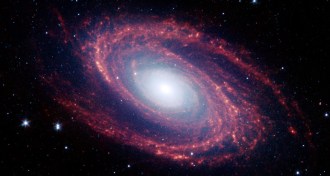 Astronomy
AstronomyGalaxies’ missing mass may hide in gas clouds
Vast reservoirs of previously undetected gas could account for much of galaxies’ matter, solving a cosmic mystery.
-
 Cosmology
CosmologyFrom Dust to Life
In about 300 pages, this book sums up the history of all that matters — or at least everything made of matter — from the Big Bang to life on Earth.
By Janet Raloff -

-
 Astronomy
Astronomy“Black holes” in space
Science News Letter was the first publication to use the term in print in 1964.
-
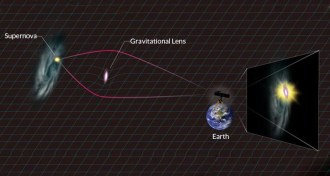 Astronomy
AstronomyEnormous cosmic lens magnifies supernova
Galaxy warps light of distant exploding star, greatly increasing its brightness.
By Andrew Grant -
 Earth
EarthThe long and winding Colorado
The history of the West’s iconic river is written in the dramatic landscapes it has shaped. How to interpret that chronicle has become a contentious issue among geologists.
-
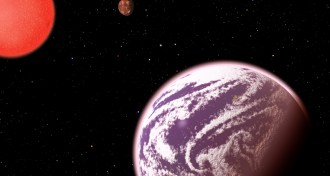 Astronomy
AstronomyEarth-mass planet resembles a mini-Neptune
KOI-314c, an exoplanet 200 light-years away, is about 60 percent larger than Earth but made mostly of gas.
By Andrew Grant -
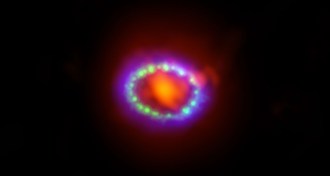 Astronomy
AstronomySupernova is a dust factory
Grains of matter spewed by stellar explosion offer clues to early star formation.
By Andrew Grant -
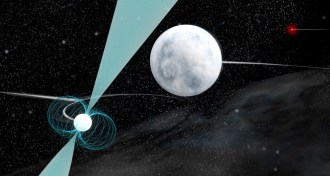 Astronomy
AstronomyUnusual three-star system promises new test of gravity
A unique stellar threesome could help astronomers test the leading theory of gravity to unprecedented precision.
-
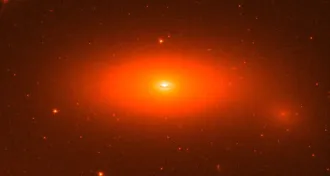 Astronomy
AstronomyRelic of early universe found nearby
A galaxy little changed since the dawn of the universe shows up in our celestial neighborhood.
-
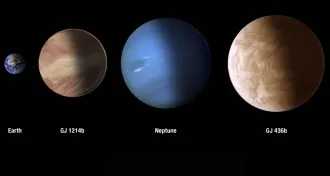 Astronomy
AstronomySigns of cloudy skies seen in two exoplanet atmospheres
Exoplanets GJ 436b and GJ 1214b have signatures of clouds in their atmospheres, but the skies are like nothing seen in the solar system.
-
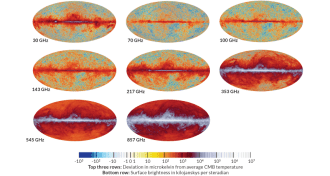 Cosmology
CosmologyBest maps of the universe, bugs and all
Maps from the European Space Agency’s Planck satellite reveal the cosmos in a range of microwave and infrared frequencies.
By Andrew Grant